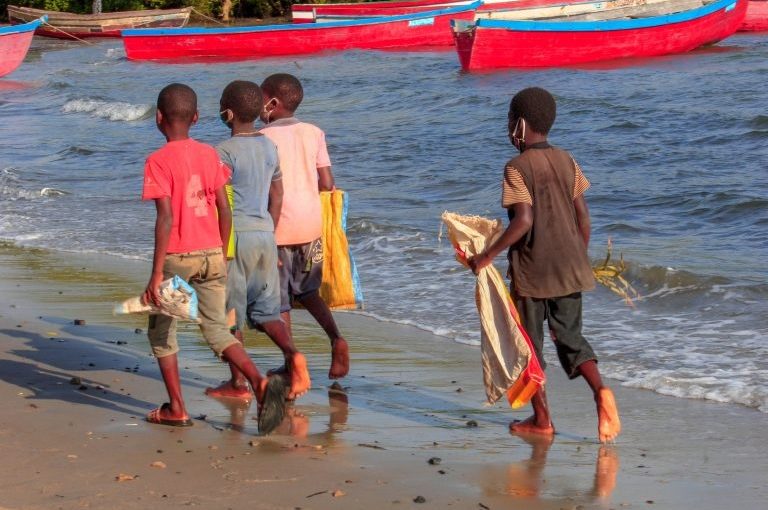Mozambique: University dean criticises normalisation of terrorism in north
Child labour: The boys working as porters at Nampula markets – Ikweli

Illustrative photo: Ikweli
The use of children to carry and load products in the city of Nampula is increasingly worrying, and represents a chilling and reprehensible violation of children’s rights.
The children, mostly aged between 10 and 15, are scattered among the various markets in northern Mozambique’s largest urban centre, and whenever a customer arrives they run after them, asking for a ‘biscate’ [odd job]
The Ikweli reporting team spoke to some of the minors who work at the markets. They said that they see it as the only way to earn a living for themselves and, in certain cases, even for their families.
Fifteen-year-old Aires Pedro lives in the Mutauanha neighbourhood and has been going to the Waresta wholesale market for more than five years, often skipping school to work loading various products. Aires attends the 5th grade at the Mutauanha EPC, but can earn 150.00 meticais a day working at the market.
“I have been doing this since 2018, trying to earn money to help my brothers and my mother. There is nothing else I can do to get money to buy food for the home,” the teenager, who also sells plastic bags, says.
Orphan Pedro Fernando, also 15 and working as a porter, told Ikweli he sold plastic bags in the market and carried 25-kilogram bags of various products. “For each bag, I earn 15 to 20 meticais, and sometimes I depend on customers of good faith to help me,” he explains.
With his earnings, Fernando manages to cover some of his family’s expenses. “We lost our father more than five years ago, and we went through difficult times to get food, so I felt obliged to resort to this practice in the markets. I preferred this market because it is the busiest.”
Edson Francisco, 14, reports a difficult reality: his own parents make him work. “I was made to take this up by my parents, to earn money for food for the family. I have been doing it for more than one year now,” he says.
A concern for the government
According to Albertina Ussene, provincial director of Gender, Children and Social Action in Nampula, child labour is a reality, and not only in Nampula’s markets. This should be of concern not only to the government, but to all of us, she says.
“In Nampula (city), child labour is very visible and accepted in the community,” Ussene says. “Those who have a little courage claim that they are needy and that those children need to be there to be able to help earning some form of livelihood. We have stopped saying that these things are not recommended.”
But she urges parents and guardians, and society in general, to encourage children go to school rather than be on the streets practising informal commerce.
Ussene stressed that the Directorate of Gender, Children and Social Action carried out awareness-raising activities in the communities, involving community leaders and influential people, in order to dissuade them from these practices.
“We have been working with parents and guardians, because previously we were giving the lectures to the children themselves and then we sensed that, probably, these children do not exactly have decision-making power. Because you are passing a message to the child, but at home the child is told by the parents themselves to carry out this activity… That’s when things get complicated,” she concludes.
By Nelsa Momade












Leave a Reply
Be the First to Comment!
You must be logged in to post a comment.
You must be logged in to post a comment.